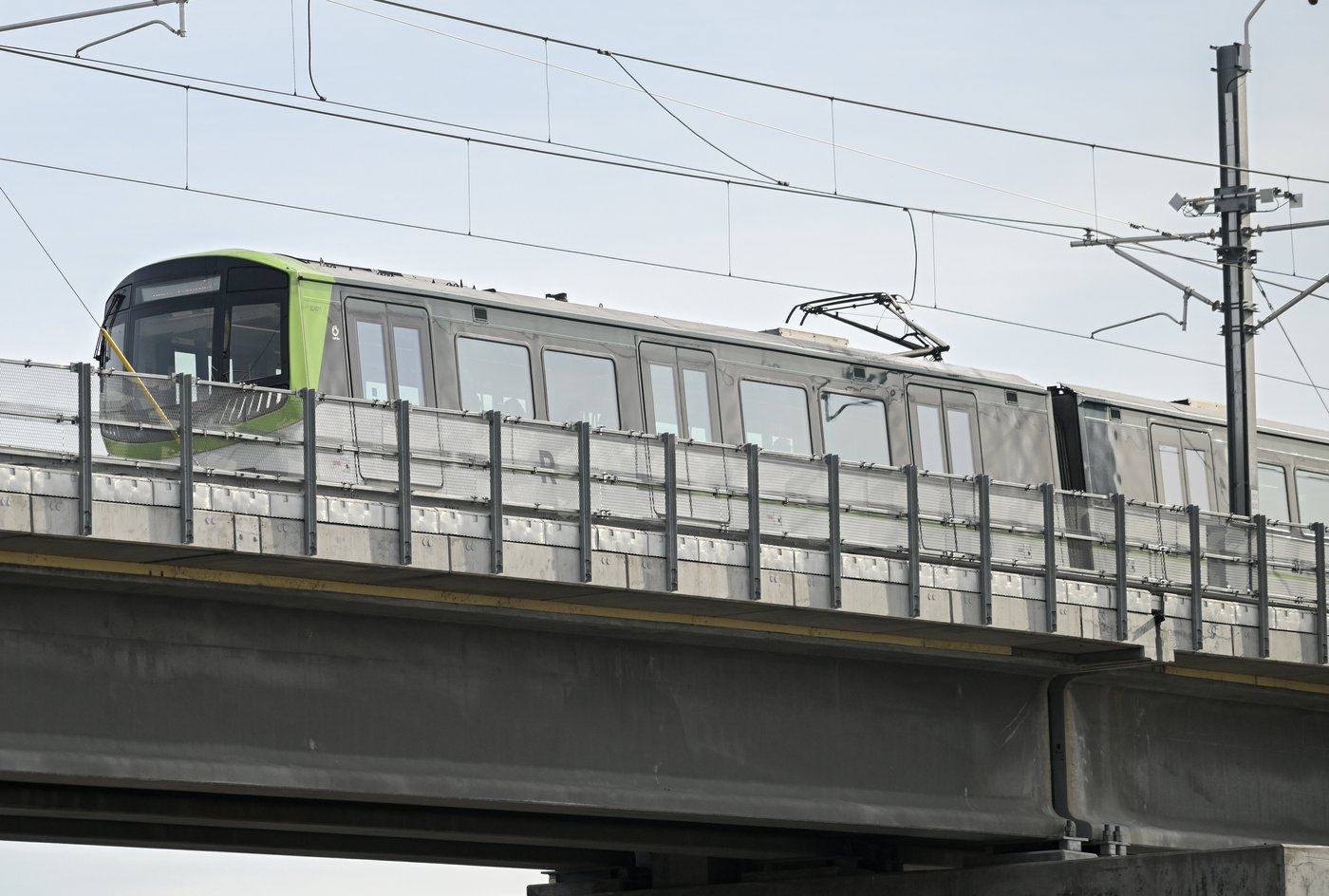
Branch of Montreal light-rail network to open in November, the other delayed to 2026
MONTREAL — Two new lines for Montreal’s fully automated light-rail network, known as the REM, won’t open as planned this fall.
Instead, only the Deux-Montagnes branch connecting downtown’s central station to Montreal’s northwest suburbs across the river from Laval, Que., will begin operating in November.
CDPQ Infra, the subsidiary of Quebec’s public pension fund manager that is developing the network, said the Anse-à-l’Orme branch running to Montreal’s West Island along Highway 40 is now scheduled to open in the spring of 2026.
The two branches were scheduled to enter service at the end of 2024, but that timeline was postponed to fall 2025 and management had been looking at an October start for several months.
The first five stations of the REM — Réseau express métropolitain — connecting Montreal’s South Shore to downtown’s central station opened in July 2023. The project has faced criticism from passengers about its reliability, especially last winter when the trains suffered multiple stoppages.
When asked about the frustration of future passengers, CDPQ Infra president and CEO Jean-Marc Arbaud emphasized the scale of the project. “In seven years, no project in Canada has been completed on such a time frame on the same scale,” Arbaud told a news conference.
“I don’t reject the criticism,” he added. “In the end, what I’m saying is that we did it, everyone who worked on the project did more than their best, and it’s a success.”
The latest delays will have no effect on the construction cost update, said Arbaud, who is set to retire at the end of the calendar year. The project is estimated to cost $9.4 billion, about $2.4 billion more than the initial forecast in 2018.
“We’re roughly … at $150 million per kilometre, automated, fully equipped,” Arbaud said. “Most projects in Canada cost around $300 million to $400 million” per km.
CDPQ Infra also said they’ve gained an understanding of the problems that occurred last winter, adding that it expects this winter to go more smoothly.
“Users had a difficult winter last winter, and we’re well aware of that, which is why we’ve completely rethought the plan,” assured Loïc Cordelle, executive director of the consortium, composed of Alstom and AtkinsRéalis, that is operating the network.
Cordelle said staff have been hired and that technical issues have been identified and resolved.
When fully operational the electric network will be composed of 26 stations operating over 67 kilometres, with the last stretch to the Montréal Trudeau International Airport scheduled to open in fall 2027.
This report by The Canadian Press was first published Sept. 25, 2025.
Join the Conversation!
Want to share your thoughts, add context, or connect with others in your community?
You must be logged in to post a comment.



















